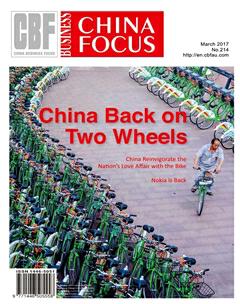Income From Universal Life Insurance Sees Sharp Decline
Insurers who sell high-risk, high-return products appear to have dramatically scaled back on new policies after insurance regulators cracked down such offerings amid concerns that they have been used to make risky investments.
New-premium income from investment-focused life policies, also known as universal life insurance, accounted for 11.4% of all new life insurance premiums in January, down from 34.8% in December, according to data released Thursday by the China Insurance Regulatory Commission(CIRC).
The percentage of premiums from conventional life insurance policies jumped from 64.7% to 88.3% as some companies switched their respective businesses from investmentfocused policies to traditional products.
The changes came after the insurance regulator zeroed in on universal life insurance last year, as concerns grew that insurance funds raised by universal life products had been used to make risky investments.
Universal life insurance, which combines a death benefit with a highreturn investment, offers returns of 4% to 8% on average, usually higher than wealth management products offered by banks and fund managers. While the high-yield polices have attracted investors and helped insurers raise funds quickly, analysts say the practice can create huge uncertainty in terms of cash flow and liquidity management for the insurer.
The CIRC conducted an investigation into nine insurance companies from May to August 2016, looking into the companies corporate governance practices, financial status, compliance with insurance laws and the use of capital.
As a result, Foresea Life Insurance, a subsidiary of financial con- glomerate Baoneng Group, was told to stop selling new universal insurance policies, while Evergrande Life Insurance, owned by Evergrande Group, was suspended from using premiums to invest in the stock market.
The toughest penalty was handed down last month, when the CIRC banned Yao Zhenhua, chairman of Baoneng and Foresea, from the insurance industry for 10 years, after Foresea was found “fabricating materials” and “misusing insurance funds.”
The insurer, 90% of whose premium income came from universal life insurance, was fined 800,000 yuan($116,000), and six senior executives were fined another 560,000 yuan in total.
Evergrande Life was also banned from buying stocks for one year following what the regulator found was“an irregular use of insurance premiums” in stock investing last year.

